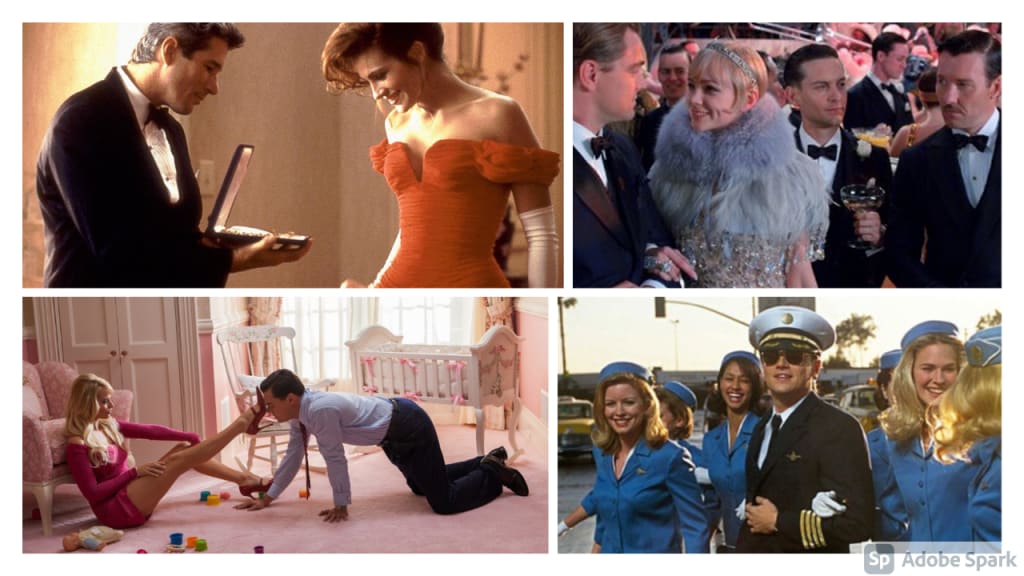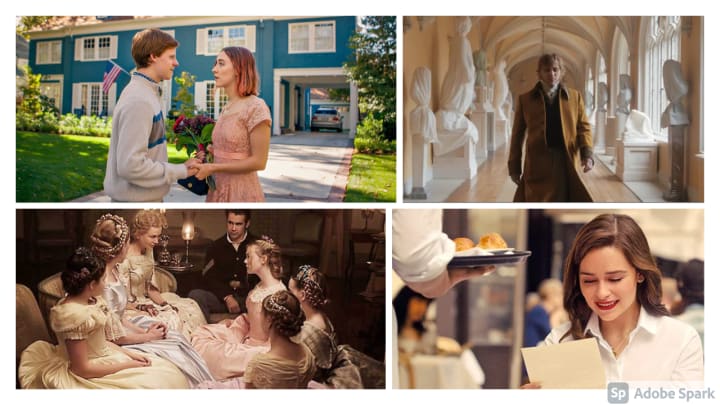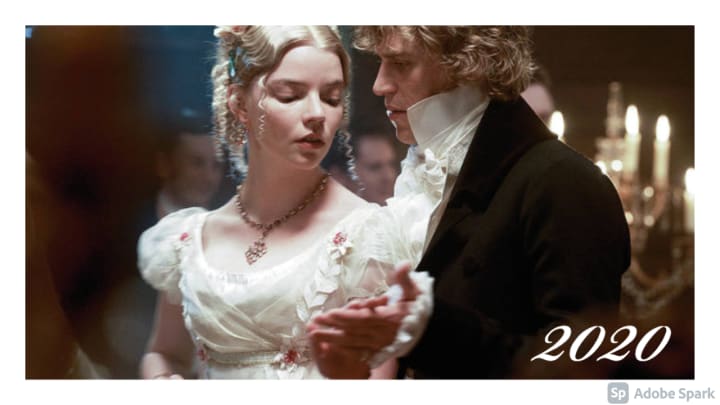A Dying Male Paradigm of ‘Money, Career, Sex’…
An outdated male paradigm of money, career, sex versus up and coming female paradigm of inspiration, creativity and love.

In life, we play certain roles without even being aware of it, as they have become such an integral part of our Self. Some of these roles we have assigned to ourselves by ourselves but some have been adopted by us or even imposed on us. We, as individuals, have a free will to choose a certain role or not. Even the imposed or forced one.
In the past decades, if not centuries, a certain ‘male’ paradigm has been much promoted and cultivated in different areas of life. Namely, the paradigm of the three elements - wealth, career and sex. As far as certain ‘high-profile’ males were concerned, all three elements had to go hand in hand and could not be separated from each other. If one element was out of the equation the unhappiness would settle in. Now, this paradigm required a third-party participation, specifically when it concerned women. The three elements, especially sex, would not be complete without female ‘roles’ assigned to them by male party. The roles mostly concerned serving men’s desires, wishes, or ambitions, in other words, making them complete. Most of women accepted the roles assigned to them either because of being weak or having no other option.
Movies are a great cultural resource where such paradigm is visible and the roles assigned to women in it are obvious. Just a few examples, ‘Pretty Woman’ (1990) – sex-wealth elements; ‘Great Gatsby’ (2013) – status-wealth element; a woman would be someone who goes into the equation once the first two elements are in place; ‘The Wolf of Wall Street’ (2013) – money-career-sex - all three are illustrated perfectly and the woman was entirely and purely for sex, though some elements of a family were mixed in; ‘Catch Me If You Can’ (2002) - money-sex – though, here the young man is also lost psychologically, but the elements of the paradigm are illustrated quite clearly. Some such movies are built entirely on the three elements, some have one or two made prominent and some have them woven into the story in a less prominent way.

Having recently compiled a list of movies by women for women, I have noticed an interesting trait, especially in the list of 2010s movies. The old male paradigm of wealth, career, sex, and associated with it male roles, is crumbling and falling apart, as female characters reconsider the pattern and their own role in it. This is not to say that all women are enlightened in this matter merely to highlight the trend.
Just a few examples. ‘Me Before You’ (2016) – the male character, Will Traynor, is stripped of the two elements: sex and career – he is an invalid but a wealthy one. Even with the one rather important element in place – wealth – he feels mentally crippled and Louisa Clark’s love cannot save him for the love is not part of the equation. With the death of Will goes his paradigm too, and Louisa is left with elements of her paradigm for nothing could have been built using the old pattern. ‘The Beguiled’ (2017) – an element of sex as enchanting temptation and related to it female roles and themes are explored. John McBurney presents a temptation and uses his sex appeal to flirt and manipulate the female characters, who were merciful enough to save him, causing a disarray which later leads to him being killed to get rid of the ‘enemy’. By killing John, the notion of sex element as it is seen in the male paradigm is killed too, as female characters, apart from one, Miss Morrow, do not wish to comply with it any longer. In the ‘Lady Bird’ (2017), the female character, Christine McPherson, explores the old male paradigm - sex and career elements - and tries to build a new one of her own, but not quite successfully, as she is not yet clear of which way to go. She aspires to Universities on the East Coast, like Yale, but everyone tells her she cannot get in. She wishes to have a special sex, meaning sex that has feelings involved in it, but is told that she will have so much unspecial sex in her life and so forth.
A largely untackled in the cinematography female paradigm is comprised of the following elements: love, emotions, nurturing, feelings, beauty, harmony, balance, comradery, community, growth, development, empathy, compassion, communication, self-expression. I would group them into three major ones – love, inspiration, and creativity.
Love includes love itself, emotions, empathy, compassion, feelings, self-expression, beauty, harmony, balance. Inspiration includes beauty, love, feelings, self-expression, communication. And creativity includes growth, development, nurturing, community, comradery and self-expression.
The problem being that this paradigm is often distorted or even ruined by colliding with the male one. The roles that women would want to have for themselves in their own paradigm are not fulfilled for they differ from the ones assigned to them within the male paradigm. For the past decades, not to mention centuries, women have battled with this clash, but until now, could not quite rid themselves of false believes and forced upon them roles as they did not have enough financial independence.
Looking at the trend that has developed in the 2010s movies created by women for women – Movies: by Women For Women: 1990s, 2000s, 2010s - it has become apparent to me that we are crossing into a different reality where for the next decade the female paradigm will strengthen and grow.

A mile stone in this journey, I believe, is the recent adaptation of the Jane Austen’s book Emma. Over the past decades there have been several adaptations of the book. However, the Emma. (2020) has several major distinctions. The screenwriter, Eleanor Catton, and the film director, Autumn de Wilde, are both women. Autumn de Wilde comes from the art industry – she is a photographer. The male characters are portrayed with a certain irony and even mockery. Mr. Elton, a vicar, is a self-righteous and sleazy creep. Frank Churchill is an arrogant ‘banker’ sort of type. Mr. Weston is an overexcited though a good-hearted simpleton. Mr. Woodhouse, the father of Emma, is an ageing man who is afraid of drafts, e.g. changes and movement forward.
There are two characters though that have promising traits: Mr Martin and Mr Knightley. Mr. Martin is a no nonsense kind-hearted and loving man of the country side and Mr. Knightley – a new type of man, representing a shift in the old male paradigm. Though a wealthy man himself, he is not interested in exhibiting his wealth preferring being more spontaneous and natural. He walks instead of using his carriage, lives just in a few rooms in his grand home, and is ready to abandon his house in order to live with Emma in hers, when she declares that she could not possibly move to his as she cannot abandon her father, Mr. Woodhouse.
And so, starting from Emma. (2020) in the new decade of 2020s we shall see how the female paradigm will come to life, transform and be incorporated in everyday life, art and culture, education, careers, and politics. In fact, starting from March 2020 you have been already witnessing some of its elements coming to the forefront. Guess, which ones?
About the Creator
Seraphima Bogomolova
Creative entrepreneur/Cinematographic visionary
Screenplays:
‘A Tricky Game', 'Puzzled, and 'Головоломка'
Books:
Головоломка, Puzzled, Задача с неизвестными, Загадка Восточного Экспресса.
Non-fiction books:






Comments
There are no comments for this story
Be the first to respond and start the conversation.